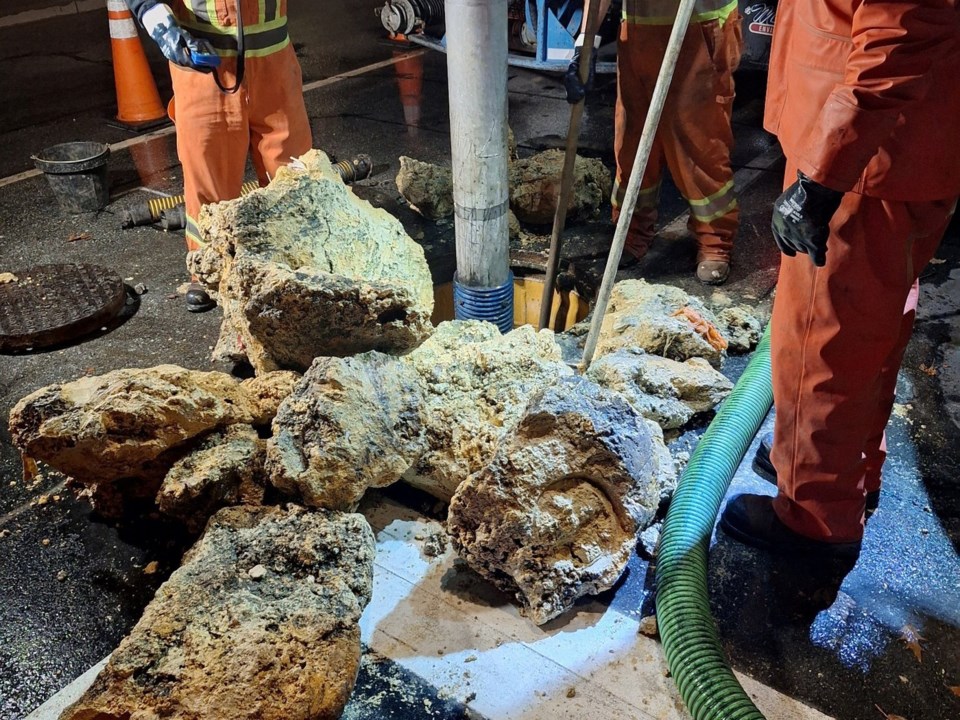Workers in Metro Vancouver have chiselled away about 50 tonnes of so-called "fatbergs" that have clogged the sewer system and prompted a reminder to residents not to dump grease down the drain.
Dana Zheng, a program manager with the Metro Vancouver regional district, said Friday that while it isn't the first time they've encountered the problem in the system, this latest discovery of hardened fat is the "most serious" they have seen in recent years.
Zheng said workers at the Lulu Island wastewater treatment plant in Richmond have been running into the giant mounds of fat since the summer, gradually extracting more than 50 tonnes in total, and costing about $1 million so far.
"We've been working on flushing and cleaning the sewers," said Zheng. "Crews have been working over the past three months to break up and remove the grease buildup."
They've used a number of different tools to remove the mounds of fat, including high-pressure water jets and vacuum trucks.
A photo issued by the regional district shows some of the hardened chunks of yellow and brown fat are large enough to reach a worker's thighs.
Zheng said Richmond has been one of the hot spots for fat deposits because of the city's flat terrain, giving grease more time to settle and harden inside the pipes.
“What we see is that fatbergs tend to be worse in high density areas, especially those with many restaurants as well as many homes and high rises,” said Zheng.
She said the fat buildup can reduce the capacity of the sewer system, leading to clogs and backups, prompting overflows into homes and businesses.
Zheng said the grease accumulated so much over the summer that it broke off in chucks and damaged the district's wastewater treatment plant, costing about $25,000 to repair.
The regional district is urging residents to dispose of fats properly by placing them in green bins for composting, rather than pouring them down the drain.
Zheng said the district is also reminding restaurants to follow regulations, such as installing grease traps that are the proper size and regularly cleaning and maintaining them.
Penalties are in place for restaurants that fail to follow the rules, said Zheng, adding that the district is increasing restaurant inspections in Richmond, and businesses caught breaking regulations could face fines.
The district's website says Metro Vancouver municipalities spend about $2.7 million every year to repair damage caused by fat, oil and grease in the sewer systems.
This report by The Canadian Press was first published Oct. 25, 2024.
Nono Shen, The Canadian Press



